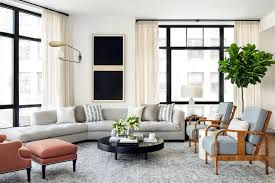Your home should feel like a retreat — a place where you can switch off, recharge, and enjoy comfort. But in reality, many living spaces feel cramped, cluttered, or impractical. The challenge lies in creating a relaxing environment without losing the functionality you need for everyday life.
The solution doesn’t have to be complicated. Simple design choices and versatile furniture, like a stylish modular sofa bed, can transform your living area into a sanctuary that balances comfort and practicality. By making thoughtful adjustments, you can achieve a space that feels inviting and works seamlessly with your lifestyle.
Why Relaxation and Functionality Go Hand in Hand
Relaxation isn’t only about soft cushions and cosy blankets. It’s also about ease of use. A room cluttered with furniture that doesn’t serve multiple purposes can feel stressful, no matter how comfortable it looks. When function supports form, you create harmony — and that’s what makes a room truly restful.
Declutter for Calm
The first step to any relaxing environment is removing visual noise. Too many items competing for attention can overwhelm your senses.
- Clear out items you rarely use.
- Choose furniture that offers hidden storage to reduce clutter.
- Keep décor simple and intentional.
The less you have to manage, the more peaceful your space will feel.
Furniture That Works Harder
One of the easiest ways to balance comfort with practicality is through multi-purpose furniture. Pieces that adapt to different needs ensure you don’t sacrifice relaxation for functionality.
- Modular sofas: Rearrange them for lounging, entertaining, or stretching out.
- Sofa beds: Perfect for small spaces or unexpected guests.
- Storage ottomans: A place to rest your feet, stash blankets, or use as an extra seat.
These choices give you flexibility without overcrowding your room.
Lighting Sets the Mood
Lighting has a huge impact on how calming a space feels. Natural light creates openness, while layered artificial lighting allows you to adjust the mood.
- Use floor lamps or table lamps instead of harsh overhead lighting.
- Add dimmers where possible to soften the atmosphere.
- Opt for warm-toned bulbs to create a soothing glow.
A well-lit room doesn’t just look better — it feels better too.
Bring Nature Indoors
Plants aren’t only decorative; they improve air quality and add a sense of calm. Even a few small plants on shelves or a large statement plant in the corner can make your space feel more alive and welcoming. Pair greenery with natural materials like wood, linen, or cotton for a grounded, relaxing effect.
Keep Versatility in Mind
A room that adapts to your needs is inherently more functional. For example:
- Hosting guests? Your modular sofa can be rearranged for more seating.
- Working from home? Create a small desk nook that blends into your décor.
- Relaxing solo? Clear floor space with furniture that tucks away when not needed.
This flexibility allows you to enjoy your space without feeling restricted by its layout.
Personal Touches That Inspire Calm
Relaxation is personal, so include details that bring you joy. This might be a favourite piece of art, a soft throw blanket, or a carefully chosen colour palette. Aim for items that reflect who you are while keeping the overall look uncluttered and cohesive.
Designing With Balance
At the heart of a relaxing yet functional home is balance. Too much focus on style can leave a room impractical, while too much emphasis on function can make it cold or uninviting. The sweet spot lies in choosing pieces that do both — supportive, adaptable furniture, calming décor, and practical design choices.
A Space That Works for You
A relaxing home doesn’t have to mean sacrificing practicality. With the right approach, you can create an environment that feels restful without compromising on everyday function. By combining thoughtful design, multi-purpose furniture, and personal touches, you can enjoy a space that’s both beautiful and efficient — one that truly works for you.
